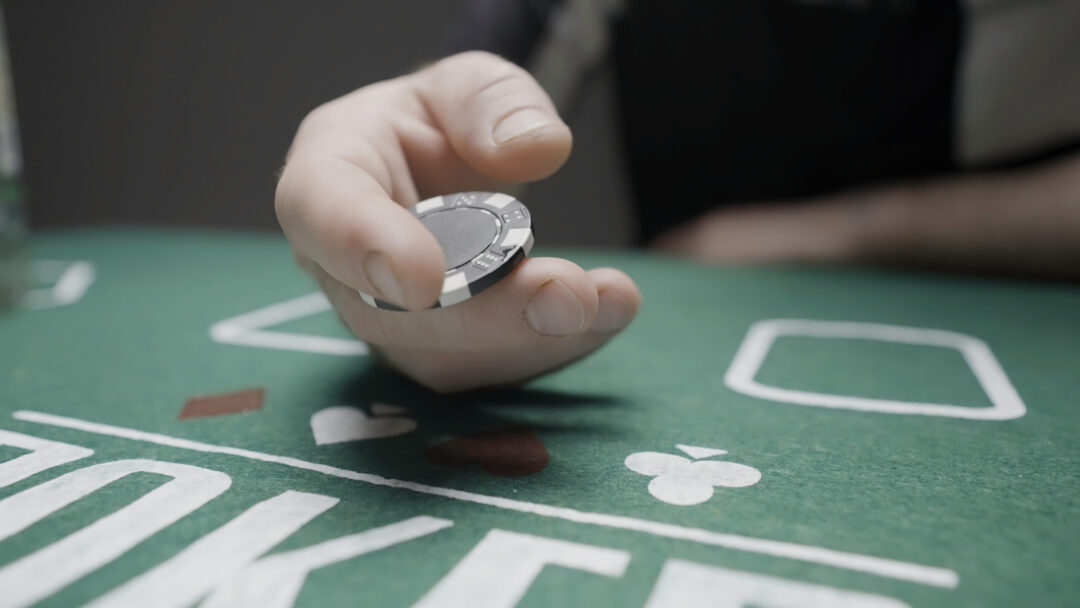
Laptopgate: The Poker Controversy Waiting for All Games
The world of poker has been in full riot the past week. The game of poker isn’t a stranger to controversy, and any game as old as poker is going to have some growing pains along the way.
The final table of the World Series of Poker this year was… divisive, to say the least. What happened on the felt wasn’t necessarily the big issue though. If you haven’t been paying attention to this controversy, let’s take a few minutes to dive into it together.
This is a very important moment in the greater world of gaming. How we use digital tools in games will be a topic that comes up over and over throughout the entire industry.
Spoilers: We’ll be discussing the final table of this year’s World Series of Poker Main Event. If you don’t want to be spoiled on the final table until you get around to watching it, don’t read further!
Solvers on the Rail
On Wednesday, July 17th, Jonathan Tamayo won the 55th annual World Series of Poker Main Event. He outlasted 10,111 other players and won the grand prize – a championship bracelet and a cool $10 million. He defeated amateur Jordan Griff in heads-up play to take home the championship.
Tamayo is a great player. That’s not where this controversy lies. In his decade plus career, he’s proven time and again that he can sit with and beat the best.
Also, the main event of the World Series of Poker isn’t exactly the exclusive club it used to be with a few dozen tables featuring a few hundred of the greats. Nowadays five figures of players are getting in on the action. The main event has become a mental endurance test… a test that Tamayo passed with flying colors.
The real controversy was behind the table though, at the rail. Sitting on the sidelines, Tamayo’s friends rooted him on. Also fellow pro poker players, Tamayo would be crazy to not occasionally ask for their advice on a tough call within the game. This is pretty normal practice. Coaching is allowed.
The real trouble started when everyone watching at home could see what was going on at his friends’ spectator table. A laptop sat there facing away from the playing area. Clearly visible on the laptop screen was a popular poker simulation platform. As Tamayo told his friends about the hand pre-flop, they’d punch in the cards and determine his exact odds on certain calls.
For a seasoned pro, this isn’t a huge advantage. Most people who make their living playing poker can tell you exactly what the odds are for any hand pre-flop against random hands to two decimals… this is elementary stuff for competitive poker. Using AI and algorithmic analysis to verify and simulate this information against different hand sizes and differing chip stack sizes does give someone an advantage over just using their more fallible head math.
These poker problem solvers have been used more frequently both online and in person, with numerous pros having been caught sneaking analysis on their phones in recent years. Still, poker governance authorities are really yet to define the hard line on what constitutes cheating.
After this main event, they may have their hand forced.
How Far Is Unfair?
It’s important to note that Tamayo says he had no idea that his friends were going to bring a laptop. He claims he was asking for normal coaching and had little clue what was happening outside the rail.
“I mean, that stuff wasn’t under my control. My job was to play. Joe and Dom were giving me advice. I didn’t tell them to bring anything. You know, whatever was on there was on there. My job was to play. You have to be pretty narrow-minded when you’re playing. All the other external stuff is just wasted energy.”
-Jonathon Tamayo, via Poker.org
This looks bad though. We have a professional player playing against an amateur in the biggest poker tournament in the world. The professional is not only getting help from two other professionals (one of whom is a previous main event bracelet winner), but also a dedicated computer program designed to solve poker problems.
The World Series of Poker has been clear about not allowing poker solvers in play. How does that apply to coaches on the rail though? How did it feel for Jordan Griff playing against not only a seasoned professional, but two sideline opinions with more experience than him backed up by AI?
Griff spoke to Doug Polk Poker’s podcast about the issue. He was totally unaware of what was going on at Tamayo’s sideline. He had assumed that if anything going on was nefarious that the WSOP floor team would step in.
“I’m sure in their mind if they knew they were doing something wrong they’re like ‘oh, well they’ll just tell us to put the laptop away’. I don’t think there was any serious repercussions people thought would come out of that.”
-Jordan Griff on Doug Polk Poker
Griff still walked away with $6 million, so not a week of work to whine about. As he discussed on Doug Polk’s podcast above, the most disappointing thing is that everybody is talking about someone trying to scrimp any unfair advantage they can get instead of the uplifting success stories that are always around in such a massive tournament.
We don’t know exactly how they were using the solver, but there are ways that it could’ve clearly tipped the balance. Were they referencing the stream to see what cards Griff was holding each hand, then punching that into their sim? If so, they could’ve gotten incredibly insight into his tendencies over hundreds of hands that Tamayo never would’ve been able to glean on his own.
We’ll probably never know how much the solver helped Tamayo. In theory, however, Dominic Nitsche and Joseph McKeehen definitely thought that it would help their buddy. Otherwise, why would they even bother?
“You think you’re getting heads-up, and you’re playing against – you know – robots now,” Griff summed up. “Optically … it’s not what you want to see at final table.”
A Gaming-Wide Problem
What constitutes fair? Especially when we’re using technology to actually engage with a game, what level of human intellect is required to be considered “fair play”?
Far more poker happens online than in person. If they aren’t even hiding that they’re doing it at the biggest in-person table in the world, surely these programs are being used all the time online in big money games. What’s most interesting in this regard is that Jordan Griff is considered one of the biggest online players in the world. Jonathan Tamayo, on the other hand, is traditionally a live tournament player.
There’s a lot of big questions here and not just for poker. Due to poker’s highly mathematical mechanics, it’s typically more straightforward to build a program to simulate it than for more convoluted games… but that doesn’t mean robust tools won’t rise for other competitive games.
Let’s start with the obvious… would a casino put up with this behind a player at a blackjack table? Of course not! Would this be acceptable in competitive chess? Definitely not.
Let’s take it further. Think about strategy games you may have played, where addons and external tools are often ubiquitous. In this day of AI, where is that line between unfair help and fair help? Most ToS on video games specific one player to one account… if you’re using the abilities of tons of programmers in a tool, is that really one human player to one account?
These are big questions… and ones I definitely don’t have the answer to. The entire world of gaming will have eyes on The World Series of Poker and the Nevada Gaming Commission, however, to see what their next steps are. How they react to this controversy will have echoes across the gaming industry for years to come.
The Future of Gaming Aids
It’s important to discuss these things, because culture will decide in these moments what’s acceptable in the future. How we incorporate technology into play and competition will change the trajectory of the human race… for better or for worse.
Where do you think that line is? Do you have a hot take or a path forward from this issue?
Bring your opinions over to #gala-gold or #general-chat-gala so that we can all see multiple perspectives on this really complicated issue. There’s no easy answer, and discussion is the best way to form educated viewpoints and find real solutions.
This is also a great topic for some great table talk!
Hop into Sweep It Poker today to take down some juicy pots while you discuss it with your poker buddies at the tables!






